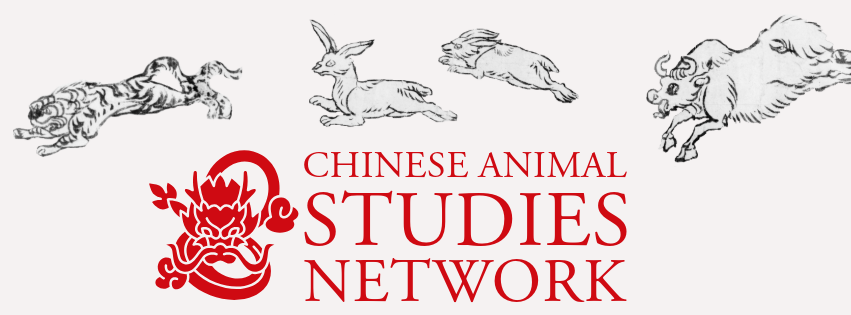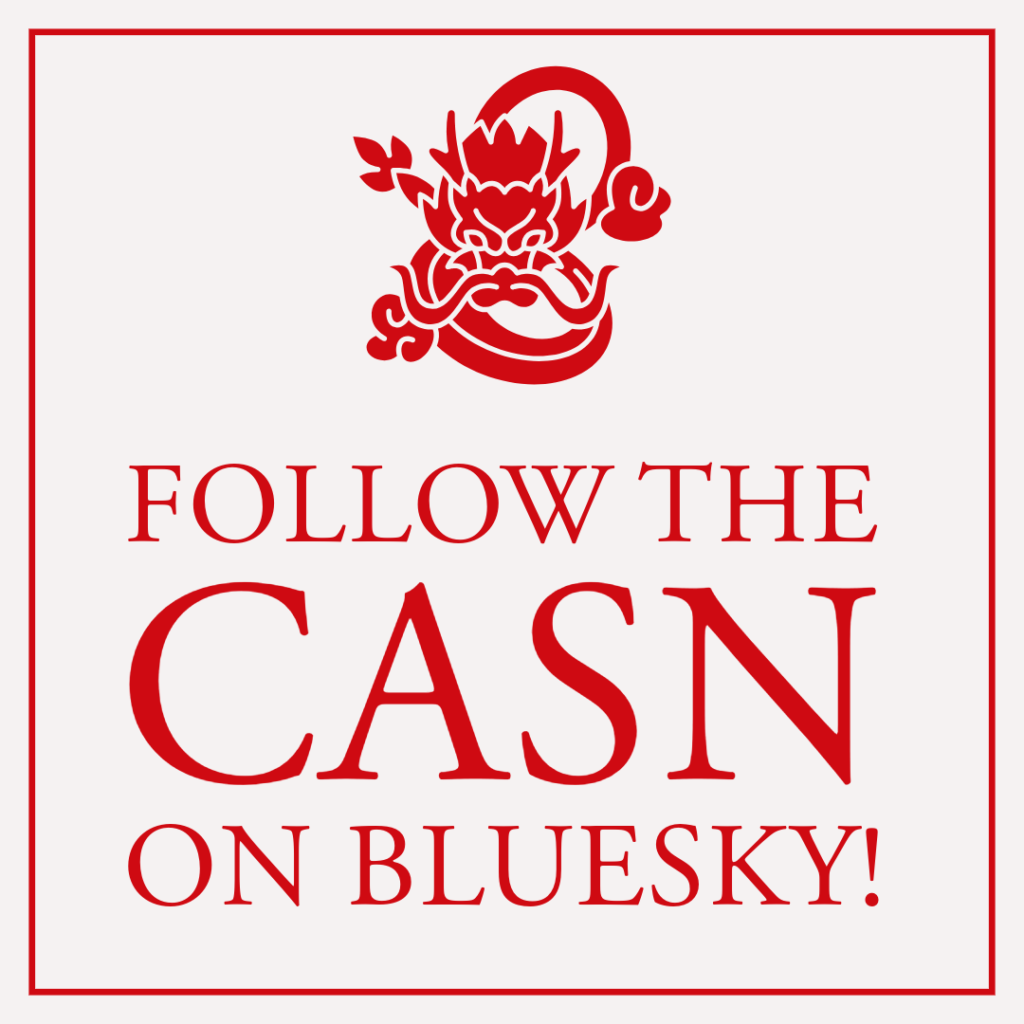
Welcome to the Chinese Animal Studies Network website! We are very excited to launch this academic network which aims to bring together scholars interested in animal studies in a Chinese context.
The study of animals present and past is no longer a fringe concern. Journals like Anthrozoös, Society & Animals, Humanimalia, and the recently-announced Animal History among others highlight just how much the study of animals has grown in past decades. Seminal books, handbooks, and collected volumes on all things animal are published ever more frequently. Many presses even have dedicated animal and environmental book series. Just as in life, animals are everywhere in scholarship.
However, despite the increasing interest in studying animals and human-animal interactions, China is rarely included in this dialogue. Do the foundational theories of animal studies still work when we bring China into the frame? Do Chinese examples present striking similarities or subtle differences to European and Western case studies? If living with and among animals is a global phenomenon, which it certainly is, surely our histories and theories should be just as global.
Events of recent years have further reinforced the importance of studying animals, particularly in a Chinese context. In the wake of the Covid-19 epidemic, China’s contemporary and historic attitudes to animals have been publicly politicised and weaponised.1 There is therefore an urgent need for empirical study, for re-evaluations and nuance, of China’s animal history and animal present.
Our network aims to highlight past, present, and forthcoming studies of animals and of human-animal interactions in a Chinese context. We want to make it easier for China specialists interested in including animals in their work to find relevant scholars, events, and research. We also hope that those working on animals in other geographic contexts will find our resources helpful and informative. CASN ultimately aims to close the gap between animal studies and sinology – animal studies needs Chinese examples to truly globalise, and sinology needs animal-related research to truly flourish.
We also recognise that, in the absence of animal-authored texts (though this is debatable!), animal-focused research can necessitate a variety of approaches.2 The CASN Co-Founders themselves each approach and access animals using different methodologies and sources, including material culture, art history, history of medicine, and literature. While we are a humanities network, CASN is not discipline-specific and welcomes all manner of historical, literary, and/or archaeological research and researchers.
CASN has three main goals:
- To disseminate recent animal-related events and scholarship via our mailing-list and Twitter/X account
- To organise animal-focused research events
- To highlight scholars and significant work concerning Chinese animal histories, animal studies, or human-animal interactions in special features on our website
If you’re interested in finding out more about our upcoming events, features, and related news, please join our mailing-list or follow us on Twitter/X. If you have a question, comment, or an idea, please feel free to reach out by email or via our contact form. We really look forward to hearing from you!
- Coverage from the early stages of the pandemic includes ‘The New Coronavirus is not an Excuse to be Racist’ by Eleanor Cummins for The Verge (February 4th, 2020); ‘John Cornyn Criticized Chinese for Eating Snakes’ by Katie Shepherd for The Washington Post (March 19th, 2020); ‘Anti-Asian Hate Continues to Spread Online Amid Covid-19 Pandemic’ by Eoghan Macguire for Al-Jazeera (April 5th, 2020); and ‘Covid-19 Fueling Anti-Asian Racism and Xenophobia Worldwide’ in Human Rights Watch (May 12th, 2020). ↩︎
- For instance, animal bodies, behaviours, genetics, and even faeces can all be considered ‘animal archives’ in their own right. See, in particular, Etienne Benson, “Animal Writes: Historiography, Disciplinarity, and the Animal Trace,” in Making Animal Meaning, Linda Kalof and Georgina M. Montgomery eds. (East Lansing: Michigan State University Press, 2011); Joshua Specht, “Animal History after its Triumph: Unexpected Animals, Evolutionary Approaches, and the Animal Lens,” History Compass 14.7 (2016); Emily O’Gorman and Andrea Gaynor, “More-Than-Human Histories,” Environmental History 25.4 (2020); and Sandra Swart, “Kicking over the Traces? Freeing the Animal from the Archive,” in Traces of the Animal Past: Methodological Challenges in Animal History, Jennifer Bonnell and Sean Kheraj eds. (Calgary: University of Calgary Press, 2022). ↩︎


